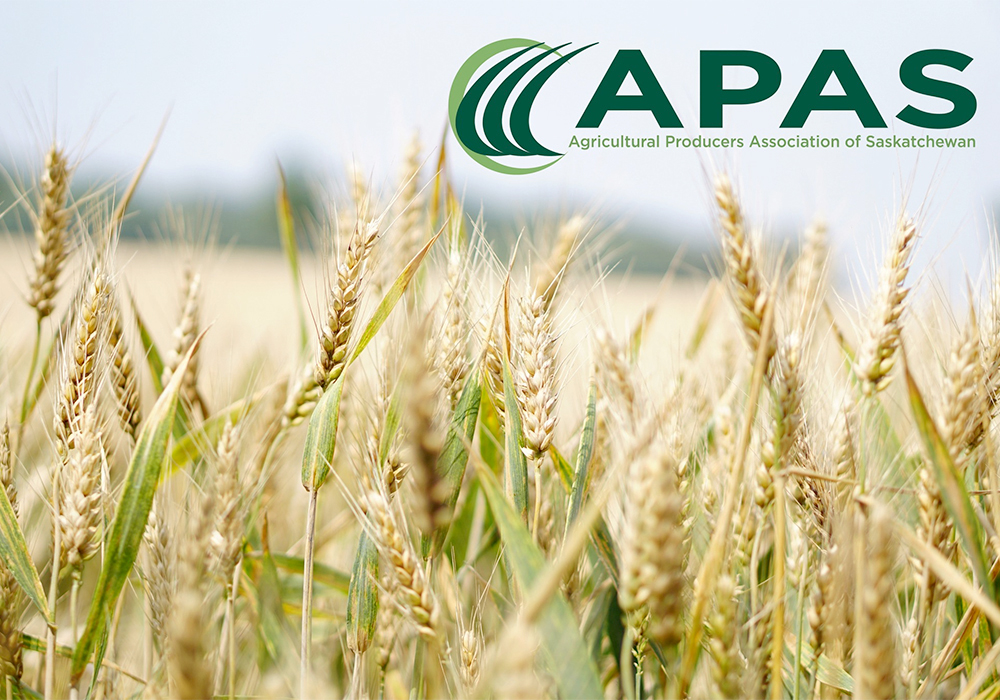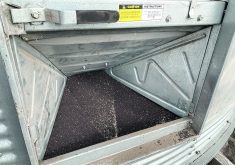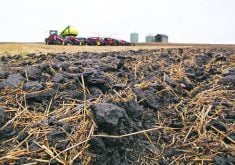REGINA — Tisdale farmer Ian Boxall was re-elected president of the Agricultural Producers Association of Saskatchewan at the organization’s annual meeting earlier this month.
Vice-president Bill Prybylski of Willowbrook and Bev Pirio of Radville were also re-elected.
Two board members, Donovan Block in District 5 and Wanda Reid in District 1, stepped down. Christopher Procyk from the Rural Municipality of Fillmore replaced Reid, while Julie Mortenson from the RM of Wreford is the new director for District 5.
“I’m looking forward to a new board because a new board brings new perspective and ideas,” Boxall said.
Read Also

Trump’s tariffs take their toll on U.S. producers
U.S. farmers say Trump’s tariffs have been devastating for growers in that country.
He pointed to some big wins for farmers in 2023 including the increase in the interest-free portion of the cash advance program to $350,000, but worries it will revert to $100,000 because eastern farmers don’t use it as much.
“We need the $350,000 a year for grain production. We’re going to keep pushing for that.”
The federal government’s announcement of an 18-month trial on long-haul interswitching is another positive development.
“Our numbers from 2014 (when the measures were in place before being rescinded) show that Saskatchewan producers saved $4 million when we did long-haul interswitching,” Boxall said.
He also pointed to the livestock summit APAS hosted in Saskatoon that resulted in a report listing three areas where policy changes could help: the environmental benefit of animals on working landscapes, access to tools to support grazing and farm support programs.
“It’s a great report,” he said. “We’re having trouble finding what is the solution that we need.”
Ongoing herd reduction is one of those concerns.
“I am a firm believer that if we’re going to complain about something, then we need to bring a solution and we’re having trouble figuring out what those solutions are.”
This past year saw APAS working with many other organizations. For example, APAS and SaskWheat led the charge against changes to grain test weights at the Canadian Grain Commission and APAS met with the Saskatchewan Association of Rural Municipalities, the Saskatchewan Cattlemen’s Association and others.
For the coming year, Boxall said the current rail freight review is a chance to point out that Saskatchewan producers pay $36 million in carbon tax on rail freight each year.
Delegates passed a resolution that APAS ask the federal government to put that tax in a separate fund to encourage adoption of technology and best practices that improve energy efficiency and reduce on-farm emissions.
The Canada Grain Act review and the Bunge-Viterra merger are also on the radar. Delegates voted to work with partner organizations and encourage the provincial government to review the merger “with a focus on regional impact to competition, market access for local crops and ownership of port facilities, and that the findings of this review be made public.”
Another resolution calls on APAS to work with other organizations to organize a Canada Grain Act Summit to review policy objectives and make recommendations.
APAS includes representation and funding from 134 rural municipalities.
Contact karen.briere@producer.com
















